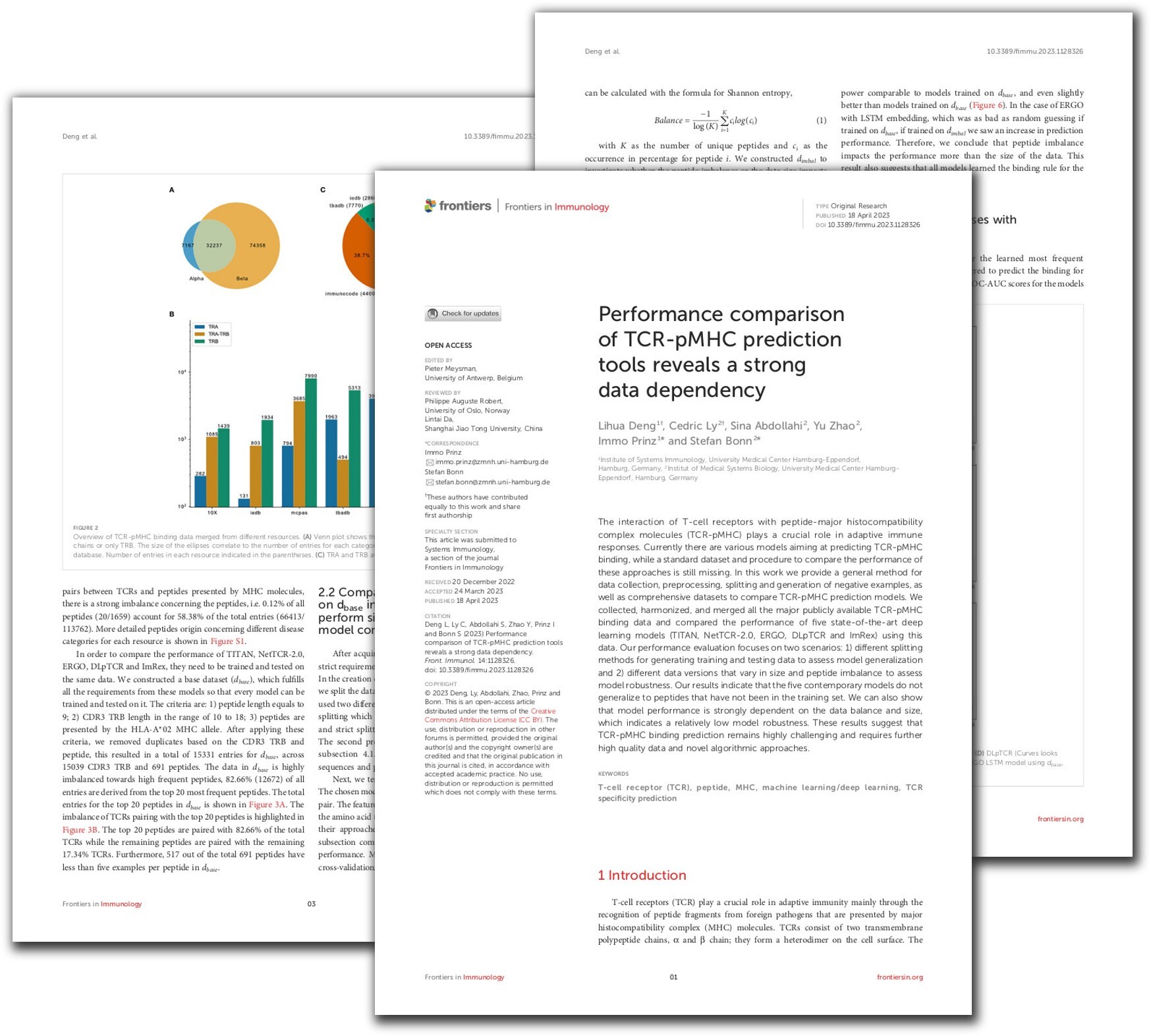
The interaction of T-cell receptors with peptide-major histocompatibility complex molecules (TCR-pMHC) plays a crucial role in adaptive immune responses. Currently there are various models aiming at predicting TCR-pMHC binding, while a standard dataset and procedure to compare the performance of these approaches is still missing. In this work we provide a general method for data collection, preprocessing, splitting and generation of negative examples, as well as comprehensive datasets to compare TCR-pMHC prediction models. We collected, harmonized, and merged all the major publicly available TCR-pMHC binding data and compared the performance of five state-of-the-art deep learning models (TITAN, NetTCR-2.0, ERGO, DLpTCR and ImRex) using this data. Our performance evaluation focuses on two scenarios: 1) different splitting methods for generating training and testing data to assess model generalization and 2) different data versions that vary in size and peptide imbalance to assess model robustness. Our results indicate that the five contemporary models do not generalize to peptides that have not been in the training set. We can also show that model performance is strongly dependent on the data balance and size, which indicates a relatively low model robustness. These results suggest that TCR-pMHC binding prediction remains highly challenging and requires further high quality data and novel algorithmic approaches.


Stay In Touch